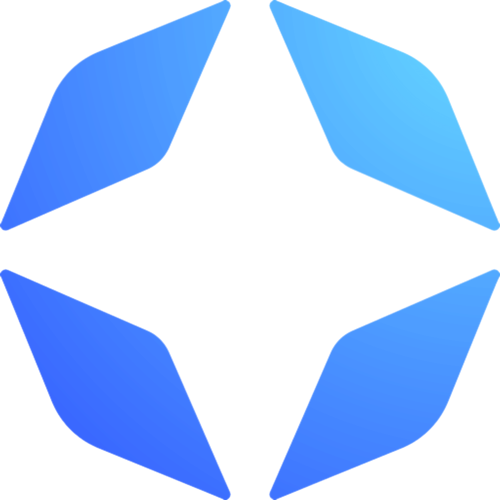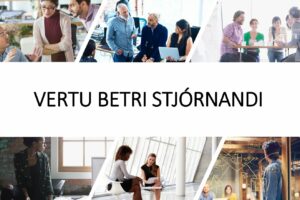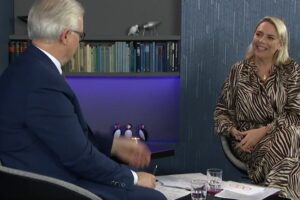Samkvæmt skýrslu Deloitte Global Human Capital Trends 2019
80% svarenda í könnun Deloitte töldu forystu (Leadership) vera afgerandi eða mjög mikilvægan þátt í árangri vinnustaða en aðeins 41% svarenda töldu vinnustaði vera að gera nóg til að þjálfa leiðtoga. Í sömu könnun töldu 86% svarenda lærdóm eða þjálfun i starfi (Learning) vera lykilþátt þróun mannauðs og árangursríkra vinnustaða.
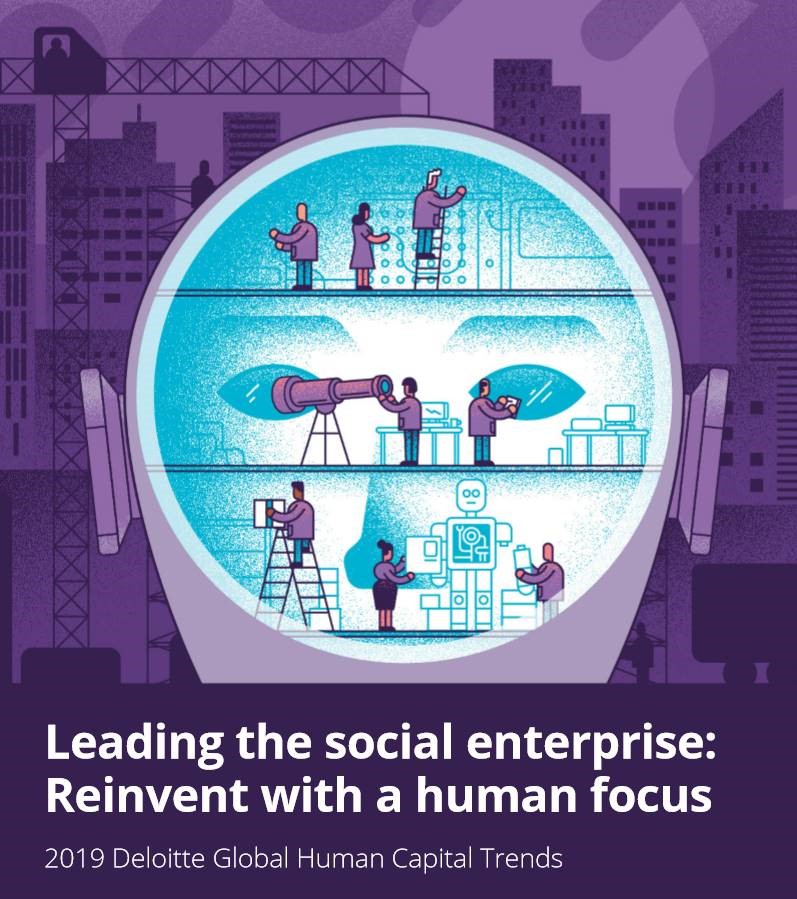
Leadership for the 21st century: The intersection of the traditional and the new. Developing leaders is the perennial issue of our time. Eighty percent of survey respondents told us that leadership was an important or very important issue, and 80 percent of respondents said that “21stcentury leaders” face unique and new requirements. To be effective in the 21st century, leaders must take a nuanced approach to pursuing traditional business goals: an approach that takes into account the new context in which such goals must be achieved, and that draws on critical new competencies—including leading through change, embracing ambiguity and uncertainty, and understanding digital, cognitive, and AI-driven technologies—to get there.
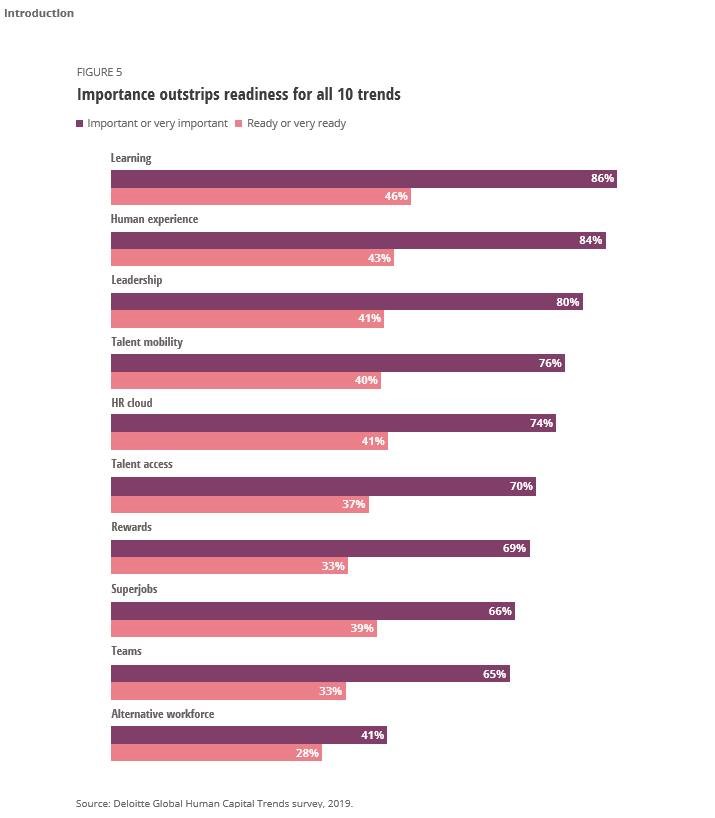
Learning in the flow of life. The number one trend for 2019 is the need for organizations to change the way people learn; 86 percent of respondents cited this as an important or very important issue. It’s not hard to understand why. Evolving work demands and skills requirements are creating an enormous demand for new skills and capabilities, while a tight labor market is making it challenging for organizations to hire people from outside. Within this context, we see three broader trends in how learning is evolving: It is becoming more integrated with work; it is becoming more personal; and it is shifting—slowly—toward lifelong models. Effective reinvention along these lines requires a culture that supports continuous learning, incentives that motivate people to take advantage of learning opportunities, and a focus on helping individuals identify and develop new, needed skills.

